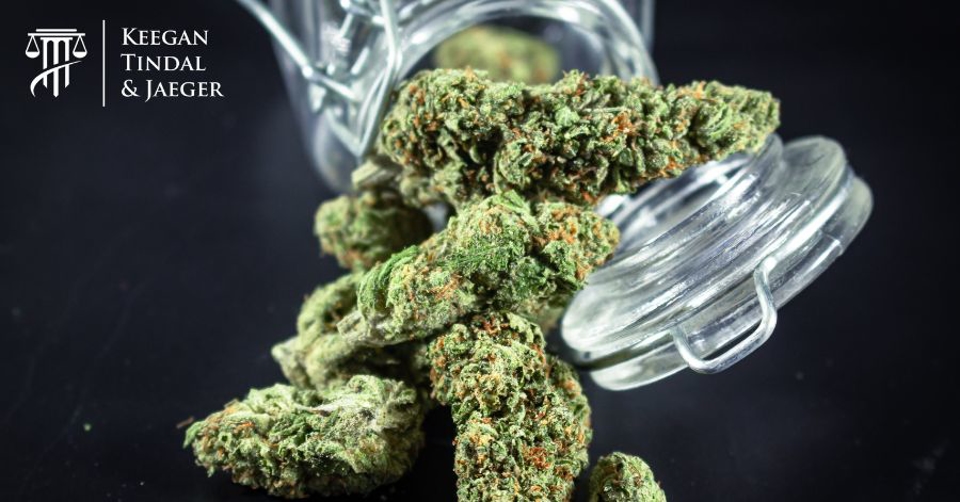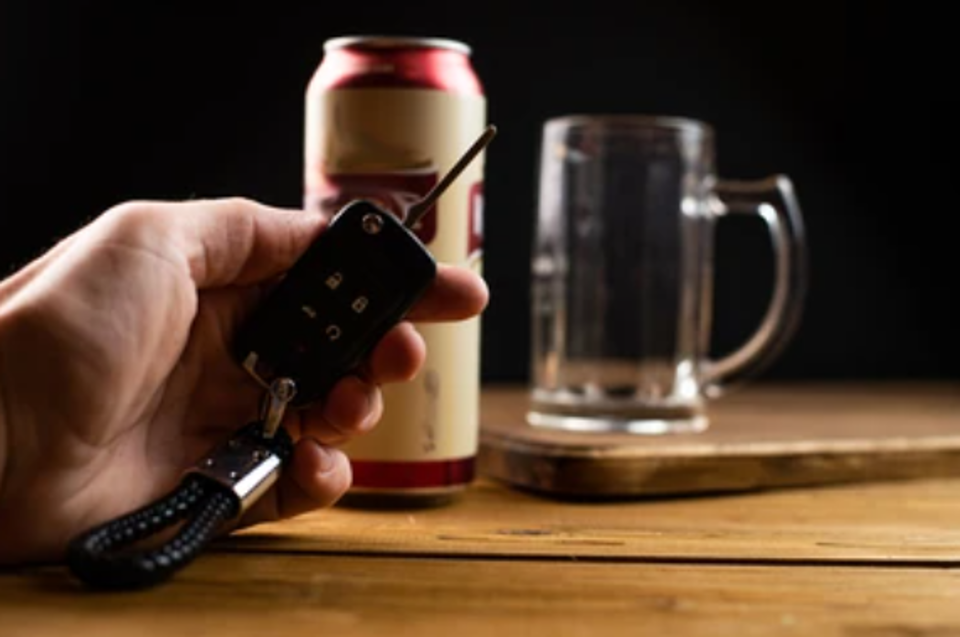Experiencing job loss or uncertainty after a DUI conviction in Iowa can feel isolating and overwhelming. If you are facing questions about your career, your future job prospects, or the consequences of a DUI on employment, you are far from alone. Many Iowans have encountered these same concerns, wondering how a criminal conviction might disrupt their work, licenses, or professional reputation. You deserve practical guidance that explains your rights and lays out specific steps you can take to move forward with clarity and confidence.
Can a DUI in Iowa Lead to Job Loss Immediately or Over Time?
If you are convicted of a DUI in Iowa, your current job may be at risk, depending on your profession and employer's policies. Most Iowa private-sector jobs are at-will, empowering employers to terminate employment for almost any reason that does not discriminate based on protected categories. This means an employer can decide to let go of an employee after a DUI, regardless of whether the incident occurred during work hours or while driving a company vehicle. For roles that require regular driving—such as delivery, sales, or transportation—a DUI conviction can directly impact your ability to perform job duties, resulting in suspension or termination.
Certain industries, like education, healthcare, and government, enforce strict codes of conduct. Employees in these sectors may be subject to automatic reviews, disciplinary action, or even mandatory termination after a DUI conviction. If you are a commercial driver, teacher, or nurse, your licensing body might require you to report the conviction, which could jeopardize your credentials and your job. Unionized positions sometimes require just cause for termination, giving added job security, but a DUI may still trigger disciplinary proceedings based on workplace policies or collective bargaining agreements.
A DUI arrest can also cause indirect job pressures. Court dates, mandatory classes, or license suspension may prevent you from meeting your employer’s attendance requirements. Some companies demand self-disclosure of legal troubles, while others react only if your duties are disrupted. Being open with your employer, backed by legal advice, often helps reduce workplace surprises and signals your commitment to resolving the situation constructively.
What Can Iowa Employers Ask About Previous DUIs During Hiring?
Iowa law allows employers to ask about criminal convictions, including DUIs, during job applications and interviews. For public sector jobs, “Ban the Box” laws restrict when employers may inquire about your criminal background, delaying those questions until after an initial interview. In Iowa, private employers still retain the ability to ask about DUI convictions early in the process unless otherwise restricted by the employer's industry or location-specific regulations.
Positions that involve caring for vulnerable populations—like children or the elderly—often come with legal mandates that require full disclosure of all convictions. Employers in the transportation industry, particularly those hiring CDL-holders, must comply with federal Department of Transportation background check rules. A DUI in Iowa may automatically trigger a more detailed investigation for these roles and can be a significant obstacle in the hiring process.
Employers are generally prohibited from considering arrest records that did not result in a conviction. Most Iowa companies focus on convictions or guilty pleas. However, these inquiries cannot intend to discriminate against protected categories such as race, religion, or disability. If you believe an employer has used your criminal history to discriminate against you, speak with an attorney familiar with Iowa employment law to explore your options.
Do You Need to Disclose a DUI Conviction to Future Employers in Iowa?
Whether you must disclose a DUI depends on the stage of the application process and the nature of the employer’s questions. If a potential employer in Iowa asks about convictions and you have a DUI on record, you must answer honestly. Failing to disclose a known conviction can result in loss of a job offer, or termination if discovered later. As background checks are routine for many Iowa employers, truthful disclosure is usually the most effective path.
Professions governed by licensing boards, such as healthcare, education, legal, or commercial driving positions, often require applicants to self-disclose criminal convictions as part of licensing or renewal requirements. In these cases, failure to report could lead to denial of a license or disciplinary action. For jobs not governed by licensing rules or specific disclosure mandates, you may only need to disclose your DUI if directly asked. Be sure to review application forms carefully—some ask about felonies only, while others include misdemeanors or pending charges.
If your DUI record was sealed or expunged, Iowa law might allow you to answer “no” to certain conviction questions. However, expungement eligibility and disclosure rules can be complex. Consult with a legal professional who regularly handles Iowa DUI record expungements to determine the best way to answer these questions while remaining in compliance with the law and truthful on applications.
How Does a DUI Conviction Affect Background Checks for Iowa Jobs?
Iowa employers run background checks using a combination of state criminal records, driving records, and third-party screening tools. A DUI conviction appears on both your Iowa criminal record and your driving history, making it visible to most employers conducting pre-employment screenings. For jobs that involve driving, including delivery, logistics, and trucking, a DUI is often a red flag—and sometimes a direct bar to employment—because it raises concerns about liability and insurance costs.
Healthcare employers, government agencies, and schools often conduct more comprehensive background checks that include fingerprinting and checks against national criminal databases. In these industries, even a single DUI conviction can disqualify candidates, especially where the role involves working with vulnerable groups or accessing sensitive information. In the private sector, some companies focus solely on recent convictions, while others may review your entire record depending on the responsibilities of the position.
Background check companies typically report criminal convictions for seven years, but a DUI can remain on your Iowa driving record for twelve years or more. Employers in high-security or federally regulated positions may have access to even older records. Before applying, consider obtaining your criminal history and driving record to correct any inaccuracies. Knowing what employers will see allows you to better prepare your explanations and supporting documentation, making the job search process smoother and more transparent.
Does a DUI Disqualify You from Holding a CDL or Other Iowa Professional Licenses?
A DUI conviction often puts a commercial driver’s license (CDL) in jeopardy. In Iowa, the Department of Transportation mandates a minimum one-year disqualification for a first DUI conviction, even if it occurred in your personal vehicle. A second DUI offense typically leads to lifetime disqualification from commercial driving, although limited appeals processes exist in some situations. During any disqualification, you are barred from driving commercial vehicles and will likely lose employment in the field. Reinstatement after suspension requires completion of all penalties, including substance abuse evaluation, treatment (if required), and possibly written and driving tests.
Other professional licenses, such as those for teachers, healthcare workers, attorneys, or financial services professionals, require mandatory reporting of DUI convictions. Boards review each situation individually, considering factors like severity, recency, and your compliance with disciplinary actions. Outcomes range from probation to license suspension or revocation, with possible requirements for counseling or additional continuing education. In some professions, employers and licensing boards coordinate closely, sharing conviction information as part of ongoing background monitoring.
If you hold a professional license and face a DUI, act quickly to review the relevant board’s policies and submission procedures. Collect necessary documentation—court records, completion certificates, letters of reference—and consult with a lawyer who knows Iowa licensure defense. Personal involvement and proactive communication can make a significant difference during board hearings, increasing your chances of retaining your license or achieving a favorable resolution.
Are There Any Legal Protections for Iowa Job Seekers with a DUI?
While Iowa does not bar employers from considering criminal history in most private sector hiring decisions, legal safeguards do exist to ensure a fair process. Public employers in Iowa must comply with “Ban the Box” legislation, which prevents them from asking about criminal convictions until after the initial interview. This law gives candidates with a record the opportunity to be considered on their merits before their history is reviewed. Some Iowa cities and counties offer additional legal protections, so it’s important to understand your specific local requirements.
Employers using third-party background checks are subject to the federal Fair Credit Reporting Act (FCRA), requiring them to disclose when adverse action is taken because of something found in your report. You are entitled to receive a copy of the report and dispute inaccuracies—for example, old information that should have been sealed, dismissed charges, or mistaken identity. These rights provide critical checks against unfair hiring practices and technical errors that could otherwise harm your job prospects.
Iowa law also enables some individuals with old or minor DUI convictions to petition for drug offenses or record sealing. If you’ve met all court obligations, years have passed, and you have no subsequent offenses, you may qualify. Expungement removes the conviction from public view, improving your employment outlook. Because these laws change regularly and eligibility varies, work with a defense attorney who can guide you through the process, ensuring all forms are completed correctly and supporting documentation is submitted on time.
How Can You Improve Your Job Prospects After a DUI Conviction in Iowa?
Job searching after a DUI takes patience and practical strategy. Begin by pulling your criminal and driving records so you know exactly what appears in a background check. This step prepares you for employer questions, helps you spot mistakes that could be corrected, and allows you to assemble necessary documentation (such as court orders and proof of program completion). Target your job search to companies with supportive hiring policies, and research which fields are more open to applicants with previous convictions.
Preparation is key—draft a concise, honest explanation of your DUI that demonstrates personal responsibility, growth, and lessons learned. Emphasize any steps you have taken since the conviction, such as:
- Completing an alcohol education or treatment program
- Volunteering in your community
- Securing positive references from employers, mentors, or counselors
- Maintaining a clean record since the incident
Seek support from Iowa job placement services, workforce agencies, and community organizations that cater to people with criminal records. Many, like IowaWORKS or Goodwill of the Heartland, offer resume assistance, job training, and employer connections. If you are pursuing jobs in regulated fields, reach out to local professional associations or reentry programs that provide guidance on license reinstatement or appeal processes. By taking initiative, you help open more doors and demonstrate readiness to move beyond past mistakes.
How Long Will a DUI Remain on Your Record & Affect Job Searches in Iowa?
A first-time DUI conviction in Iowa typically stays on your driving record for at least 12 years. For criminal background checks, non-government employers often follow the seven-year lookback standard, but many regulated positions and government jobs allow for more extensive review. Because of these long-lasting consequences, the impact of a DUI on job prospects can linger for years after legal penalties end.
However, Iowa law allows for limited expungement of some DUI-related offenses, particularly after deferred judgments or with successful completion of probation. If you believe you may be eligible, request guidance from an Iowa criminal defense attorney familiar with record clearing procedures. Keeping your record accurate and updated is essential—errors and outdated records can show up during job checks even after you have paid fines or completed all sentence requirements.
Monitor your criminal and driving records regularly. If you find outdated information, file for correction promptly. This vigilance gives you peace of mind and ensures you are presenting the most accurate representation of yourself to future employers. As more time passes and you demonstrate consistent, law-abiding behavior, many employers become more willing to overlook old DUI convictions, especially if you provide a strong record of rehabilitation and positive contributions since the incident.
Where Can You Find Support & Resources to Rebuild Your Career After a DUI in Iowa?
Iowa offers a variety of support organizations and practical services to help people move past the setbacks of a DUI. Local agencies, such as IowaWORKS, provide job placement, resume assistance, skills training, and access to employers who hire people with criminal histories. Your local library or community center may hold job fairs, counseling events, or workshops for resume development and interview preparation.
Organizations like Goodwill of the Heartland and Proteus, Inc. help individuals with criminal records build job skills, locate housing, and establish reliable transportation—all factors critical for workforce reentry. Community and faith-based groups in cities such as Iowa City, Cedar Rapids, and Davenport sometimes operate mentorship programs, offer free legal clinics, or connect participants to employers that support second-chance hiring. Some Iowa counties also maintain reentry councils or resource networks specifically designed to help individuals reintegrate and thrive.
If your career requires professional licensing, consider reaching out to trade associations or online support networks for advice on reinstatement or navigating licensing boards. Attending professional meetups, volunteering, or joining peer groups can expand your network and provide encouragement as you rebuild. Taking full advantage of these Iowa-based resources not only supports your job search but can help you maintain accountability and optimism throughout your journey.
The Value of Working with an Iowa DUI Defense Attorney for Career Concerns
Managing the job-related repercussions of a DUI conviction often requires both legal insight and practical support. An Iowa defense attorney with a deep understanding of criminal cases, employment law, and professional license regulations can help you explore options to limit employment fallout, challenge questionable evidence, and navigate licensing board procedures. At Keegan, Tindal & Jaeger, our background includes unique perspectives—such as knowledge of breath-testing technology and prosecution tactics—giving us added insight to identify opportunities for reduced charges or alternative sentencing that could protect your career.
We focus closely on helping clients understand how a DUI conviction may influence professional licensing, ongoing job applications, or record expungement procedures. Our team stays current on Iowa’s “Ban the Box” rules, expungement laws, and rehabilitation programs, so you receive clear, up-to-date guidance for moving forward. We collaborate with clients to develop proactive strategies for job searches, disclosure, and licensure reporting, reinforcing your efforts to rebuild both reputation and employment stability.
If you are facing questions about employment or license status after a DUI, you do not have to navigate this process alone. Contact Keegan, Tindal & Jaeger at (319) 499-5524 for a confidential discussion about your options and a personalized strategy for protecting your career. We understand the challenges Iowa job seekers face with a DUI record, and we are committed to helping you regain control and move forward positively.






